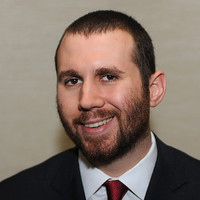If progressive Democrats have their way, the ballot will join the driver's license as a symbol of newfound freedom when high schoolers turn 16.
Serious prospects for lowering the United States' minimum voting age dimmed on March 3, when the House voted down Rep. Ayanna Pressley's amendment to the H.R. 1 election reform bill that sought to extend voting rights to 16- and 17-year-olds. But with House Speaker Nancy Pelosi's support and the movement gaining popularity, expect this effort to remain on Congress' radar.
Rep. Grace Meng, D-N.Y., raised the issue in February when she reintroduced H.J. Res. 23, which would replace the 26th Amendment that established 18 as the federal voting age with one designating 16 as the new threshold. Reps. Alexandria Ocasio-Cortez, Rashida Tlaib, Jamaal Bowman and Pressley, all members of the young progressives' coalition known as The Squad, are among the 17 co-sponsors.
Pelosi hasn't made the issue a priority this year, but she's long been on record as an advocate for expanding the franchise from seniors to sophomores. She made the pitch during the Make Progress National Summit in 2015 and echoed those remarks during a March 2019 press conference.
Advocates note that many 16- and 17-year-olds pay taxes as part-time workers and allowing them to vote would help make trips to the polls a lifelong habit. The Vote16USA campaign is a project of Generation Citizen, a nonprofit that works to enhance high school civics education.
Yet many of the same politicians who believe teens should have the right to vote are otherwise skeptical that young people are mature enough to make responsible choices.
Pressley and Tlaib sponsored H.R. 2339, the Protecting American Lungs and Reversing the Youth Tobacco Epidemic Act of 2020, which included a provision to increase the purchase age for tobacco products and e-cigarettes from 18 to 21. The age-limit change was stripped from the bill, which later passed the House but died in the Senate.
Under Pelosi's leadership as House speaker, lawmakers tacked the restriction onto a $1.37 trillion appropriations bill that won congressional approval and was signed into law in December 2019.
Three and a half decades earlier, Congress passed the National Minimum Drinking Age Act to limit the sale of alcoholic beverages to adults 21 and older. That measure used highway funds as leverage to wheedle states into changing their laws. The tobacco age increase relied on federal authority in the Constitution's Commerce Clause to steamroll state legislatures and set nationwide policy.
While most age restrictions limit young people's rights, there's a corollary push to reduce responsibilities. In 2019, North Carolina passed "Raise the Age" legislation to refer 16- and 17-year-olds accused of criminal offenses to the state's juvenile court system, as defendants 16 and up had formerly been tried in adult courts, where convictions can carry a lifetime stigma. Michigan raised its juvenile jurisdiction age the same year, and Missouri made the switch in 2018.
Though it's properly labeled regressive rather than progressive, left-wing support for speech codes, trigger warnings and safe spaces on college campuses underestimates young adults' ability to tolerate expression that offends them. Campus political correctness is, at its roots, an appeal to extend adolescence and treat undergrads more like children than grown-ups.
The same people who want to empower 16- and 17-year-olds by ushering them into the voting booth also patronize young Americans when it comes to their choosing whether to drink, smoke or vape; being held accountable for criminal offenses; and voicing their views in lecture halls and on campus quads.
A well-worn cliche best illustrates the absurdity: At 18, you can enlist in the armed forces and risk your life in battle, but once you come home, you're considered too immature to swap war stories with your buddies over beers.
Eighteen should be the uniform age of majority, the time when all rights and privileges of American citizenship are vested. Our current piecemeal approach is infantilizing, and it deprives young people of full participation in society.
There's one possible benefit, however, to letting 16- and 17-year-olds vote: A surge of first-time teen voters could send restrictionists home and end congressional age discrimination. Perhaps Pelosi and The Squad ought to be careful with what they wish for.
Corey Friedman is an opinion journalist who explores solutions to political conflicts from an independent perspective. Follow him on Twitter @coreywrites. To find out more about Corey Friedman and read features by other Creators writers and cartoonists, visit the Creators webpage at www.creators.com.
Photo credit: Wokandapix at Pixabay






View Comments